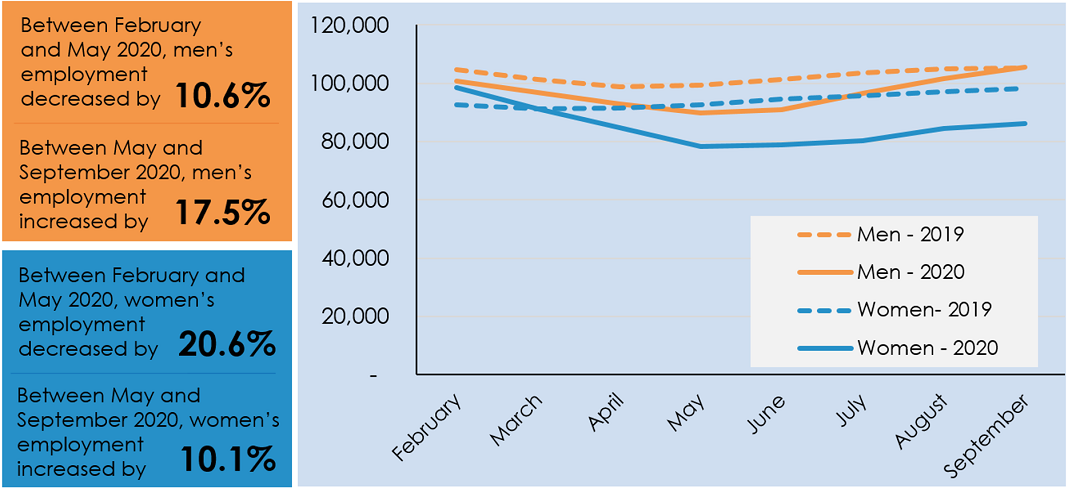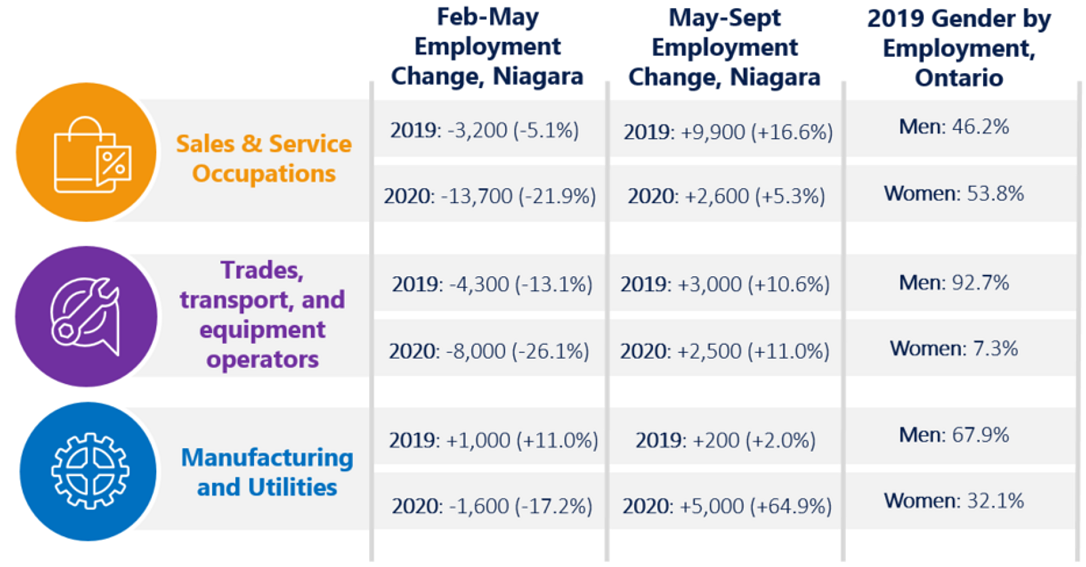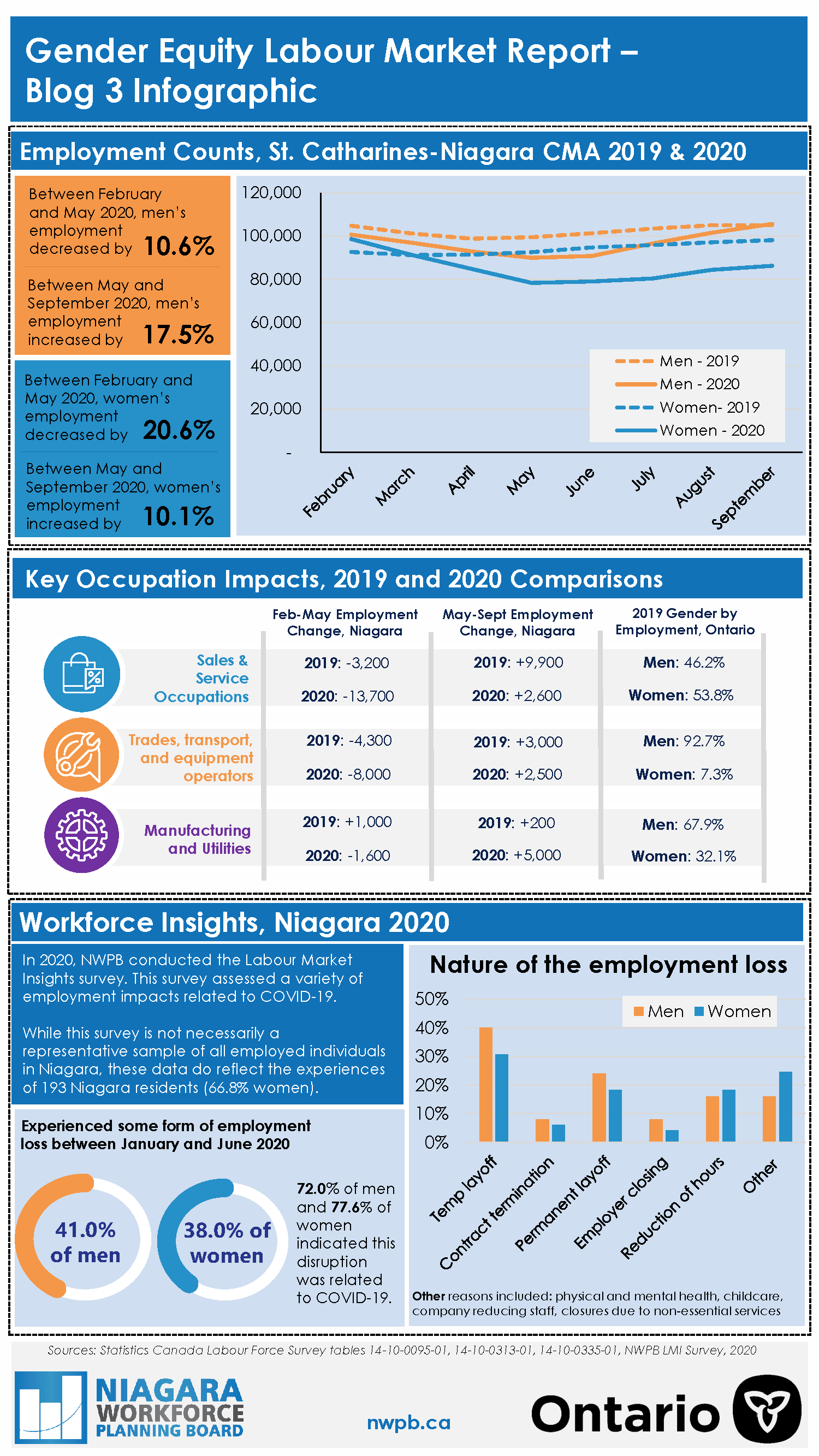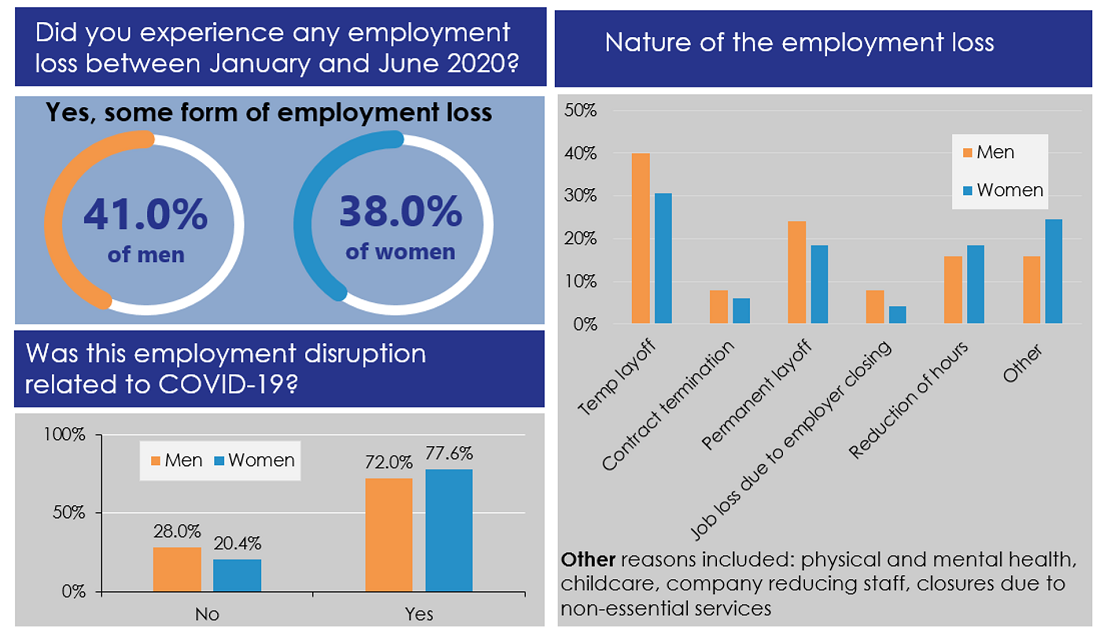One of NWPB’s 2020-2021 projects is to produce a gender-focused Labour Market Report. Given the current context, taking into account the gendered impacts of COVID-19 offers a deeper understanding of specific local impacts. It also offers context for those working towards gender equity and aligns with current priorities of Niagara’s Regional government.
In addition to a larger report, we are publishing a series of posts outlining gender-focused labour market information. This post will focus on providing a baseline understanding of who is living and working in Niagara.
Employment Impacts
Every month, Statistics Canada releases data from the Labour Force Survey. These data allow us to examine changes in key labour force characteristics for Niagara. Comparing employment counts between 2019 and 2020 indicate that 2020 saw larger employment decreases between February and May than in 2019. In addition, local employment has been slowly increasing since May, 2020.
Gendered breakdowns of employment data show that impacts on employment for men and women have not been equal. Figure 1 shows that both men and women experienced large employment decreases throughout 2020. However, employment decreases were larger for women between February and May, and employment recovery since May 2020 has been slower for women than it has been for men.
Figure 1: Employment in St. Catharines-Niagara CMA, Men and Women, 2019 & 2020

Throughout 2020, overall employment decreased between February and September. This trend was largely carried by three cohorts:
- Women aged 15 to 24 (saw a decrease of 3,500 individuals in employment)
- Women aged 25 to 54 (saw a decrease of 8,600 individuals in employment)
- Women aged 65 years and older (saw a decrease of 3,100 individuals in employment)
One factor that relates to impacts on employment are the occupations and/or industries in which individuals report employment. The following table outlines occupations that represented at least 5% of total employment in Niagara throughout 2019 and experienced:
- an employment decrease of 20% or more between February and May 2020, and/or
- an employment increase of 20% or more between May and September 2020

Together, this sheds some light on occupations where some employment losses were seen between February and May, and where some employment gains were made between May and September, 2020. Though this is not a comprehensive examination of all employment impacts for each occupation, these data start to provide more insight on potential employment decreases and increases for men and women.
Workforce Insights
In 2020, NWPB conducted the Labour Market Insights survey. This survey assessed a variety of employment impacts related to COVID-19. While this survey is not necessarily a representative sample of all employed individuals in Niagara, these data do reflect the experiences of 193 Niagara residents (66.8% women).
Here we see that a sizable number of survey respondents reported some form of employment loss or disruption, most of which were related to the pandemic.
Would you like to know more? NWPB is ready for your questions. Please reach out to Vivian Kinnaird, NWPB’s CEO.

